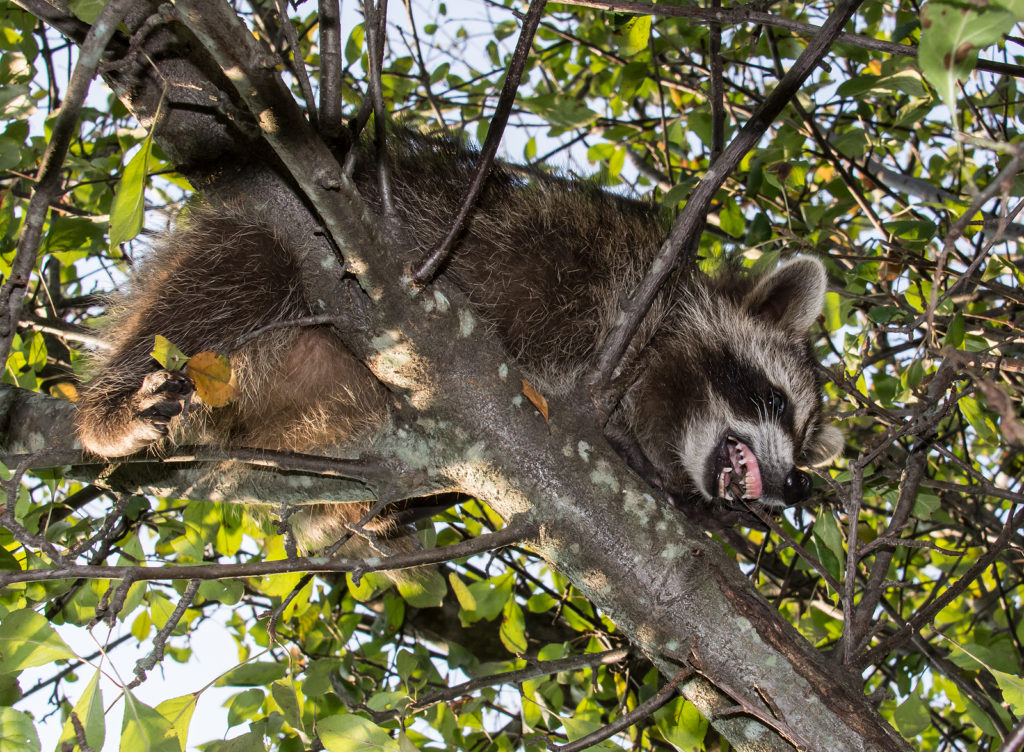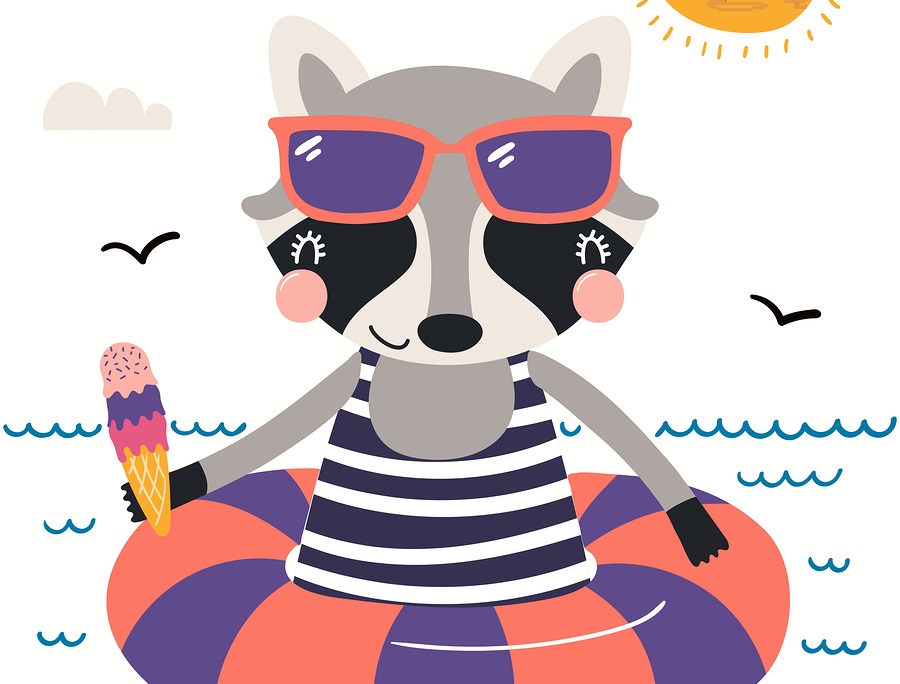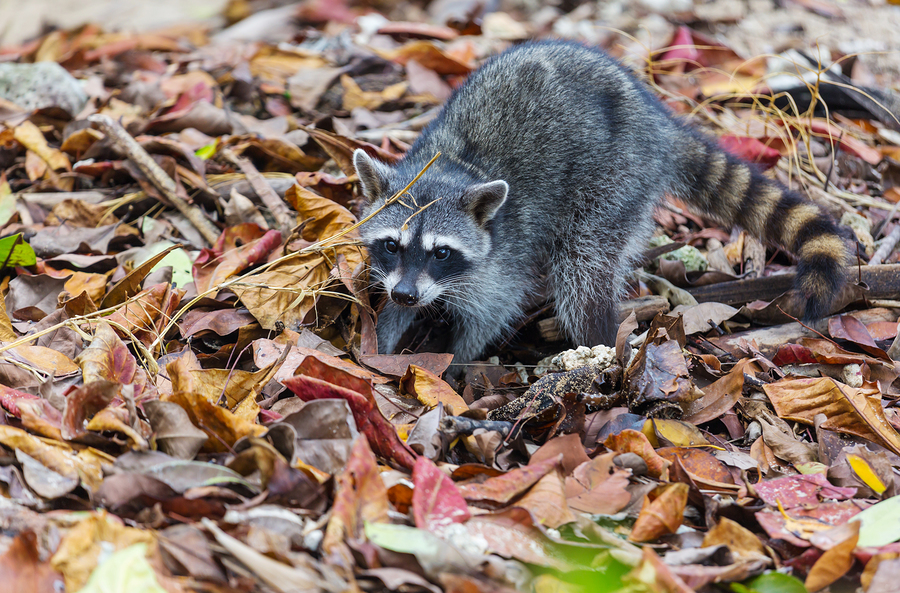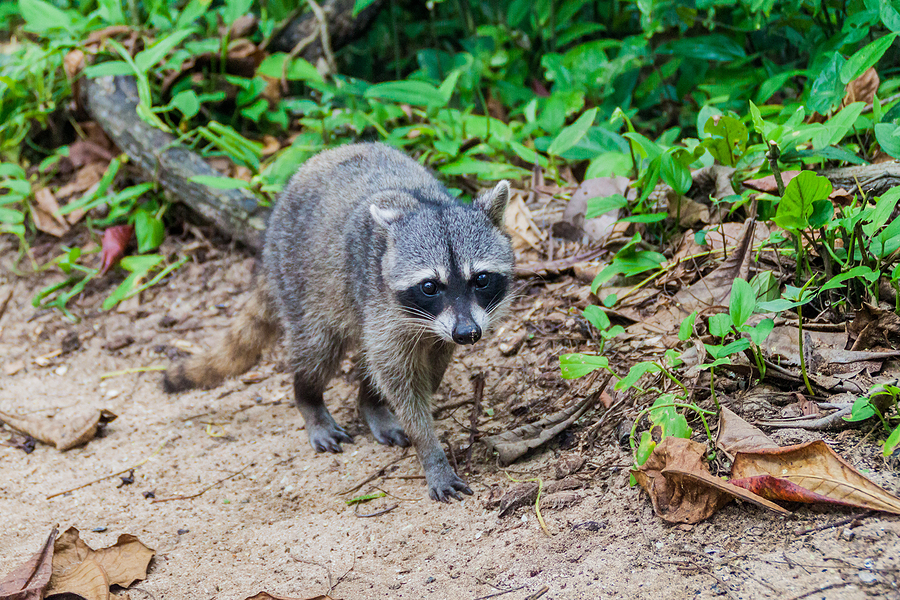It is common for property owners to be confronted with a raccoon problem at some point in time. When home and building owners reach this dilemma, it is very crucial to act against them right away. Raccoons can cause extensive damage to the structural makeup of a building or home, as well as destroy expensive landscaping and leave behind huge, embarrassing messes. Raccoons are known to be smart and intuitive, relentlessly finding ways to trespass onto or into a property for food and shelter.
It is up to the property owner to act and remove raccoons permanently, and they can do this through a variety of ways. Continue reading to learn how.
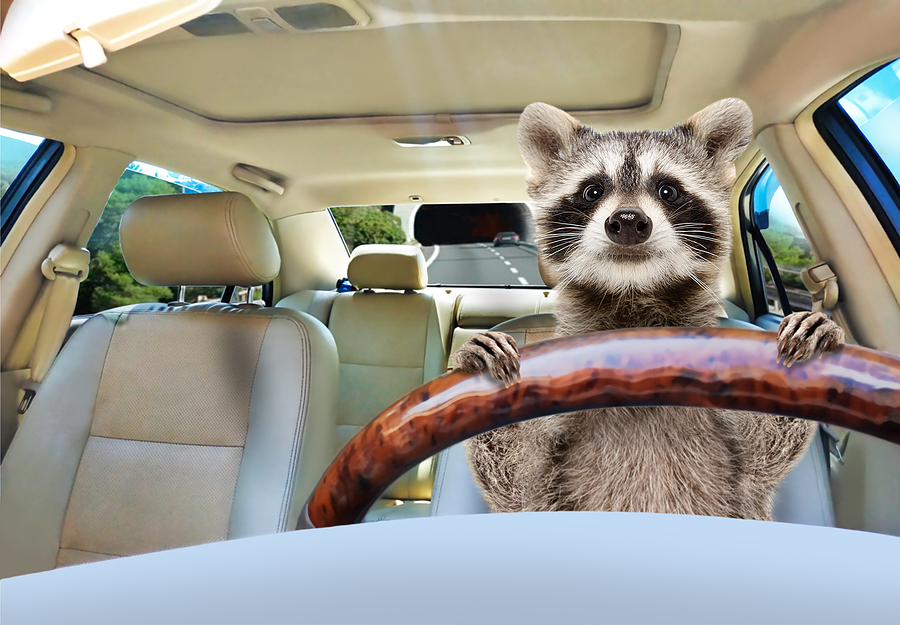
Raccoon Basics
Raccoons are from North America. They are a medium sized mammal, reaching anywhere from 15-30 inches in length, on average. Their weight averages between 10 and 20 pounds. They are known for their nocturnal lifestyle, sleeping during the day, and feeding and breeding at night. Raccoons normally feed on fruits, nuts, small prey such as frogs and crayfish, and plants.
However, raccoons that hover and colonize near suburban communities and neighborhoods, feed on different things. They will roam neighborhood streets in search of compost stacks and trash cans and rip through garbage looking for edible scraps. You can spot these creatures by their signature markings. They have a gray coat of fur with a black and gray striped tail. They also look as if they are wearing a black bandit mask right over their eyes.
Outside of the domesticated areas of our communities and neighborhoods, raccoons nest and burrow underground or in hollow trees. Sometimes they build their homes in brush piles or tree stumps. However, on the other side of the fence, raccoons will often times intrude into homes or buildings in search of shelter. They can burrow under porches, in crawl spaces, rooftops, attics, and more.
Their presence results in many types of damages to roofs and structural components of the property. They leave a huge mess and cause extensive damage and odor from their urine and droppings. They can rip off roof shingles, tear through insulation, saturate sheetrock and wood, leave behind germs and diseases, and destroy flower beds and gardens. There is no end to the amount of damage a raccoon colony can cause.
Raccoon Removal and Control Methods
Raccoon exclusion comes in many varieties. Choosing the right method depends on the size of the job and the resources available to a person. Many people in the past have succumbed to electrical wiring and fences to keep raccoons from coming on their property. Others have tried raccoon traps and snares. These are temporary treatments and will not prevent raccoons from invading forever.
The most effective way to treat a raccoon problem is by hiring a professional Indianapolis raccoon removal company. There are many ways to catch raccoons but only a professional company has the proper equipment and knowledge to remove raccoons safely and effectively. They can give property owners guidance on how to not attract pests in the future and implement actual methods and practices to ensure this.
Indianapolis Raccoon Removal You Can Trust
Call 317-535-4605 for Indianapolis raccoon removal services you can trust. We are DNR licensed and insured nuisance wildlife removal contractors who offer a wide range of raccoon removal and control services, including raccoon cleanup, raccoon proofing, minor restorations for raccoon damages, and more. Call 317-535-4605 to request a free estimate or emergency service, today.


